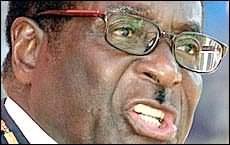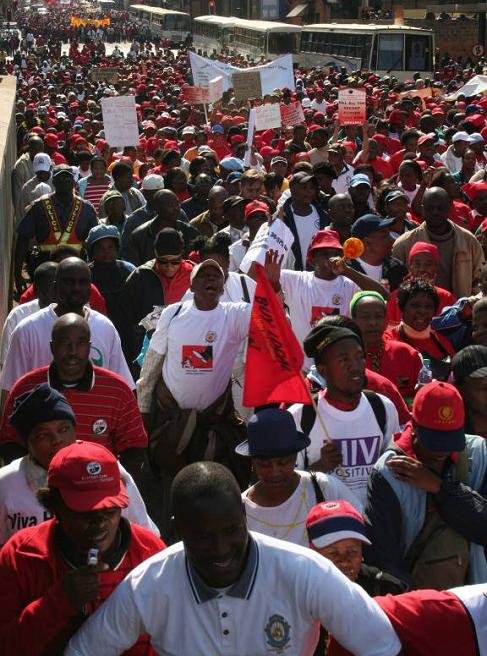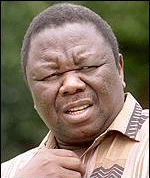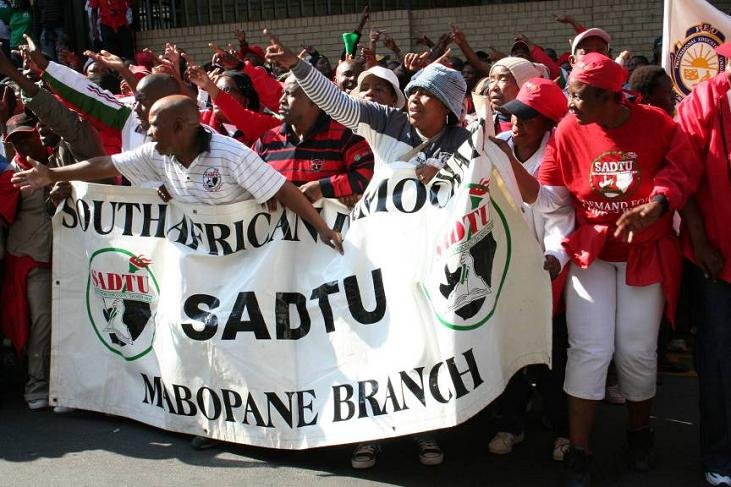
Zimbabwe broke land deal
By Paul Boateng,
British High Commissioner in South Africa
Last updated: 06/18/2007 12:38:43
IN RECENT weeks there have been comments in the media and remarks made about the UK's government's role with regard to land reform in Zimbabwe, something which the country's leader, Robert Mugabe has consistently argued is at the heart of his country's internal crisis and the cause of his external dispute between Zimbabwe and the UK.
It has been said that there is an artificial amnesia about the issue and that there were broken promises made by colonial powers. I would contend that as it is nearly 28 years since that historical agreement was signed at Lancaster House, many have perhaps forgotten what was agreed there and the fact that the British government has since then remained committed to supporting effective and well-managed land reform in Zimbabwe.
In 1979, the Lancaster House Agreement ended the illegal Rhodesian regime. The Zimbabwe-Rhodesia regime, the Patriotic Front, led by Robert Mugabe and Joshua Nkomo, both liberation leaders to whom proper credit is due, and the British government were all represented at the talks and signed the final agreement. Land reform was discussed and the UK's position was set out by the conference chairman, Lord Carrington, a distinguished former Foreign Secretary of the UK.
The independence constitution, agreed at Lancaster House, entrenched protection for property rights for the first 10 years of independence. The Zimbabwean government's acquisition of land was limited to the willing buyer-willing seller principle. Thereafter, the Zimbabwean parliament would be able to alter the constitution in accordance with its own legislation.
No provision was made in the Lancaster House Agreement for a specific fund to support land reform. But a Zimbabwe Donors Conference in March 1981 raised £17-million (about R240-million) for development in Zimbabwe, including land reform. Between 1980 and 1985, the UK provided £47-million for land reform: £20-million as a specific Land Resettlement Grant and £27-million in the form of budgetary support to help the Zimbabwean government's own contribution to the programme.
By 1988, the Land Settlement Grant had been largely spent. The then UK Overseas Development Agency fully endorsed the resettlement, which had taken place and suggested measures for further improving the UK-funded programme. The Zimbabwean government did not respond to these proposals and the grant was closed in 1996 with £3-million unspent.
In 1998, the Zimbabwean government hosted a land conference in Harare, involving international donors and multilateral institutions. Both the UK and Zimbabwean governments endorsed the fundamental principles agreed at the conference: transparency, respect for the rule of law, poverty reduction, affordability and consistency with Zimbabwe's wider economic interests. Sadly, the two-year inception phase agreed at the conference was interrupted by farm occupations and violence in the run-up to the 2000 Parliamentary elections.
In late 2000, the UN Development Programme (UNDP) administrator proposed to the Zimbabwe government a slowing down of the programme to fit Zimbabwe's implementation capacity; the promotion of internal dialogue; and the possible resumption of UNDP technical assistance.
In 2001, a group of Commonwealth foreign ministers (including the UK and Zimbabwe) met in Abuja, Nigeria. They agreed that land reform had to be implemented in a fair, just and sustainable manner, in the interest of all the people of Zimbabwe. The Zimbabwean government agreed to prevent further occupation of farm lands, to restore the rule of law, to take firm action against violence intimidation and honour freedom of expression. At that meeting the UK re-affirmed its commitment to a significant financial contribution to such a land reform programme and gave an undertaking to encourage other international donors to do the same.
But in 2001, the Zimbabwean government amended the Land Acquisition Act to allow it to allocate land without giving the owners the right to contest the seizures. This was in direct contravention of the Abuja Agreement.
The UK remains a strong advocate of land reform and has since 1980 provided £44-million for land reform and £500-million in bilateral support for development in Zimbabwe, more than any other donor.
The UK has honoured its commitments, from Lancaster House onwards, and remains willing to contribute to an equitable land reform programme.
The fact of the matter is that the Zimbabwean government has not adhered to the principles of land reform, to which it has repeatedly agreed from 1980 onwards and its own laws have been arbitrarily overridden. The result has been that the process of redistribution was characterised by the tragic scenes we have seen played out on our television screens and the collapse of the agricultural economy.
Contemporary Britain is not blind to the injustices of the past and wishes to be part of a process that heals and binds people together, promoting the broad ownership and redistribution of land in a way which meets the needs of the poor and creates an efficient agricultural economy. Land reform in Zimbabwe is therefore central to a wider programme of reform, recovery and renewal of the institutions of that country. The decisions surrounding that and the form and nature of its government are not matters which can be decided in Britain. The principle of African solutions for African problems applies in Zimbabwe as it does elsewhere on the continent.
The SADC and the AU now own and have established the principles of good governance in this continent and it is enough that they are adhered to. The good news is that this is now happening all over Africa. Why should it not happen in Zimbabwe too? President Thabo Mbeki, as he carries out his SADC mandate, can count on Britain to work with its partners and all people of goodwill within every section of Zimbabwean society regardless of race, creed or party political affiliation to bring about the speedy recovery of that beautiful country in a way that honours the spirit and letter of the Lancaster House Agreement and respects the vision and foresight of its signatories.
Boateng is the British ambassador to South Africa. This article was originally published in the Star newspaper














No comments:
Post a Comment